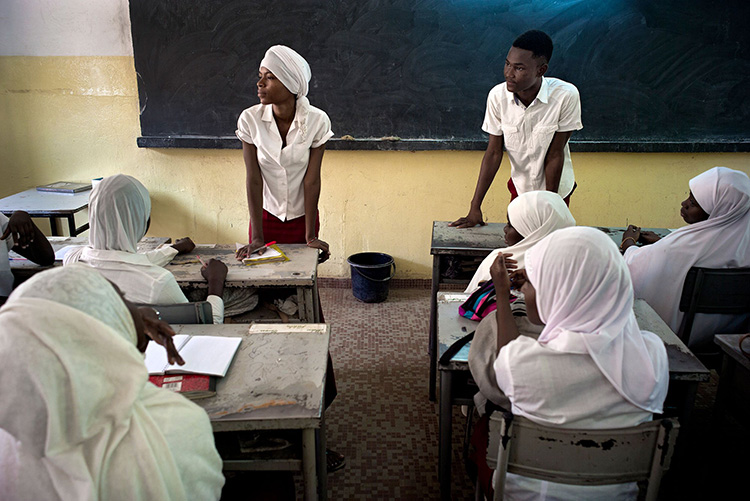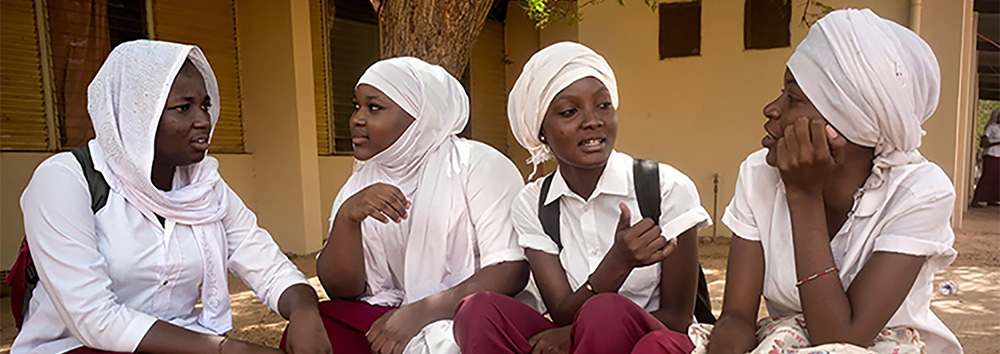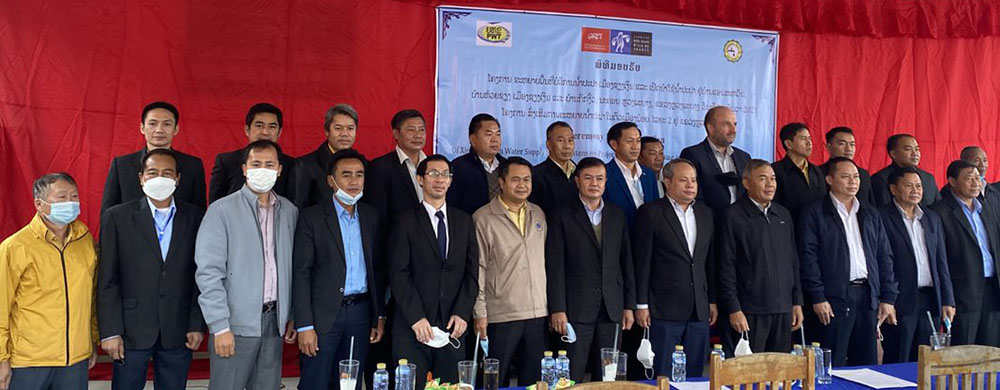Today, young people aged 15 to 24 account for 16 % of the world’s population, and their number should rise to almost 1.3 billion in 2030. The issue of their integration and supporting them is becoming a real challenge, particularly in Africa. In light of this, with the Jade programme agreement, Agence française de développement (AFD) and GRET intend to sustainably foster the support and integration of almost 10,000 young people in six countries.
Although people under the age of 25 in 2017 accounted for 63 % of the West African population, many young people do not have satisfactory access to essential services (education, health, etc.). Similarly, their accession to decent, sustainable work is still a challenge that remains to be overcome. In addition, they are not much involved in public life, because of poor governance procedures and traditional societal functioning in which elders are to the fore. Young women are subject to gender inequalities and do not benefit from the same integration prospects as young men. Young people are insufficiently informed and poorly trained in social, civic, environmental and climate issues, and it is difficult for them to contribute to long-term sustainable development in their territories.

The Young stakeholders of tomorrow (Jade) programme agreement
Drawing on its long-standing experience in economic inclusion of young people, GRET and its partners – in particular the National federation of rural young people in Mali, Caritas in Mauritania and Y’en a Marre in Senegal – are fostering better support for young people and thereby contributing to improving their integration capacities so that they can become a lever of change. Launched in July 2020 and funded by Agence française de développement (AFD), the Jade programme agreement is a pilot programme introducing reflection around young people as a transversal development theme and aiming to structure a multi-dimensional approach to young people’s integration. This programme is designing and testing pertinent, innovative ways to support young people in their overall integration: economic and professional integration, but also social, civic, environmental and climate integration. In this way, young people are considered as stakeholders in change, and no longer as just beneficiaries of development actions.

An experimental programme based on recognised expertise in professional integration
Jade is laying the foundations for an inclusive strategy to support young people via the implementation of innovative, structural supports to facilitate their overall integration and their position as stakeholders in long-term sustainable development of their territories. The programme is also focusing on strengthening civil society’s capacities to consider young people in their activities and their governance.
The Jade programme is being implemented in six countries – mainly in West and Central Africa – through six development projects already underway and four new actions. In the Republic of the Congo, Mauritania, Mali and Senegal, the programme is consolidating previously implemented activities around training and support for integration. In Guinea and Haiti, the interventions are making it possible to experiment in new fields, focusing on the environment and climate (Guinea), or political and social issues (Haiti). The objective is to extend actions involving young people to other areas and consolidate GRET’s intervention approach in favour of integral inclusion of young people.

A transversal approach to supporting young people in their overall integration
With the Jade programme, GRET is supporting the overall integration of almost 10,000 young women and men. It is also strengthening the capacities of civil society in the six countries of intervention, and those of French national & international solidarity organisations and their partners to consider young people in their activities and their governance.
The programme is being rolled out around three pillars:
- Enrichment of the economic and professional integration approach by systematically including new dimensions favouring the integral inclusion of young people as stakeholders in a long-term sustainable economy in their territories. This enrichment can be achieved by consolidating activities focusing on economic inclusion and, more particularly, in-depth examination of environmental and climate issues to facilitate the emergence of jobs and activities generating a decent income while contributing to a local long-term sustainable economy. In addition, the focus placed on the Guidance-Training-Integration continuum aims to make young people stakeholders in their professional integration by opening up their scope of possibilities, enabling them to make more eco-responsible choices.
- Testing of a transversal approach to young people in actions conducted in the field, enabling young people to become social and eco-civic stakeholders in their territory. This objective can be achieved in particular through awareness-raising and actions conducted alongside young people, taking a participative approach. The activities conducted will contribute to strengthening young people’s individual capacities, or to strengthening collectives – civic movements, associations, young people’s groups, etc. As young people live in a global social environment, it is necessary to involve the people around them in these processes (family and community networks) in order to generate broad adhesion and strengthen participation.
- Make the subject of young people a transversal area of action-research and strategic reflection. The objective is to strengthen GRET, its partners, solidarity organisations and donors working with and alongside young people to take account of their needs and expectations, and their integration in development projects and public policies in order to make them the stakeholders of tomorrow. To do this, we are training and testing various approaches to the question of young people in different contexts to produce tools and disseminate knowledge.
Funded by AFD and led operationally by GRET, the Jade programme agreement applies to ten projects in six countries.




